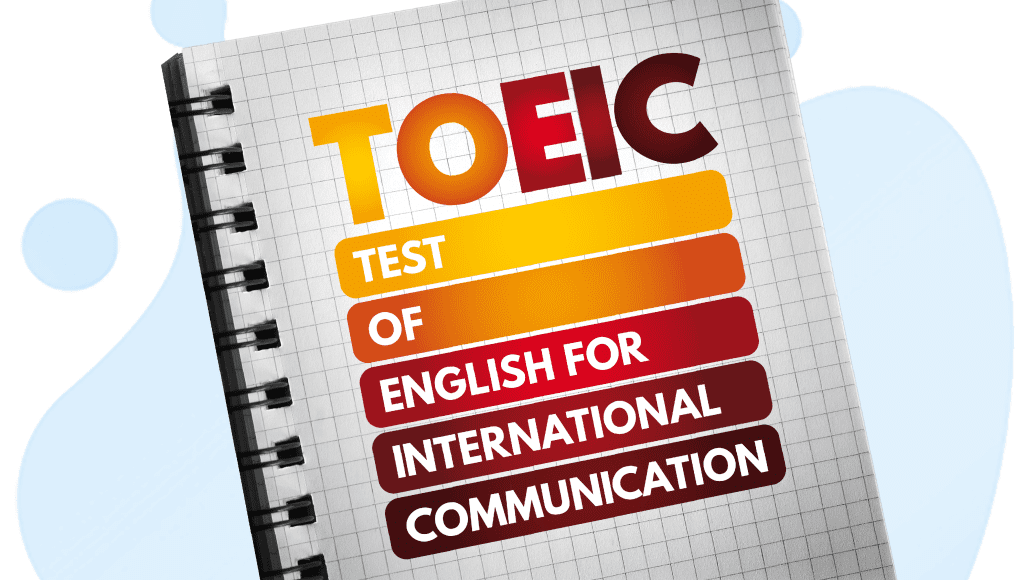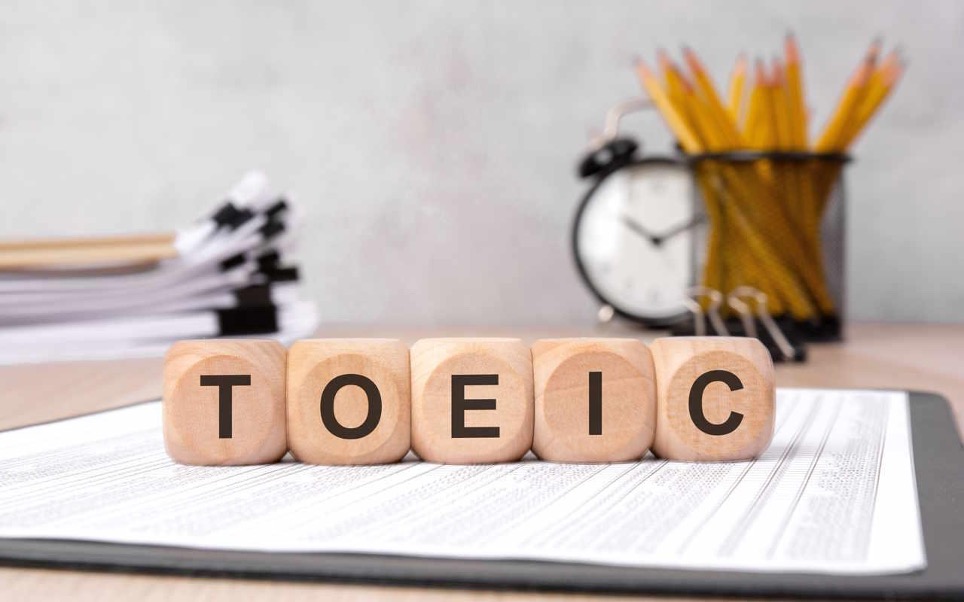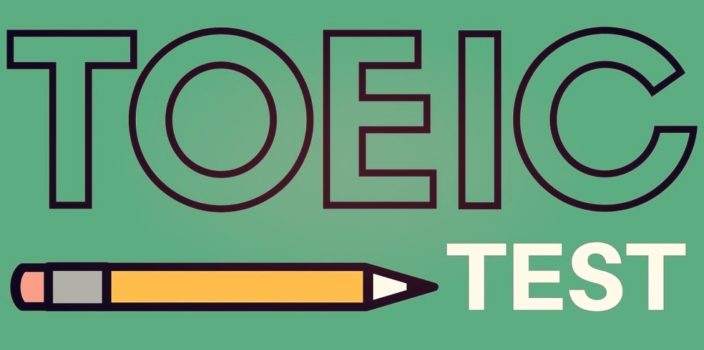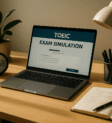
What Score Should You Get to Pass the TOEIC?
Your comprehensive guide to understanding TOEIC scores, what employers and schools look for, and how to achieve your target in 2025. Let Red Swan Tutor light your path to success!
#TOEICScore #TOEICPass #EnglishTest #CareerGoals #AcademicSuccess #TOEIC2025 #RedSwanTutor
The TOEIC (Test of English for International Communication) stands as a benchmark certification, powerfully showcasing your English proficiency to the world. Holding a strong TOEIC certificate can provide a significant advantage, whether you’re aiming to enter a prestigious higher education institution or applying for a job that demands fluent English communication skills. It’s a key that can unlock numerous global opportunities.
But a common question arises: “What score should you get to pass the TOEIC?” While the concept of “passing” isn’t as straightforward as a simple pass/fail, understanding the scoring system and what different scores signify is crucial for your ambitions. Let’s delve into the details to help you set your sights on the right target. Ready to map out your success strategy?
Discover Your Perfect TOEIC Prep Plan
Understanding “Passing” & TOEIC Scores: More Than Just a Number
First and foremost, it’s essential to understand that the TOEIC Listening & Reading test isn’t a pass/fail exam in the traditional academic sense. Instead, it provides a precise measurement of your current English language skills for the workplace. Your score reflects your ability to understand and use English in everyday and professional contexts. The TOEIC score is calculated on a total of 990 points. This total is derived from the sum of your scores in two main sections:
- Listening Comprehension: Scored out of 495 points.
- Reading Comprehension: Scored out of 495 points.
So, from what score can you confidently justify a good level of English? What score is typically needed to enter top schools? And what score will impress potential employers? These are the critical questions we’ll explore.

Beyond Listening & Reading: It’s worth noting that ETS, the creators of TOEIC, also offers separate TOEIC Speaking and Writing tests. These are scored differently, typically out of 200 points each (total 400 for S&W), and assess productive skills. However, the Listening & Reading test is the most commonly required for general purposes.
The TOEIC effectively certifies a specific level of English proficiency, which might be deemed excellent, good, developing, or needing improvement. Depending on the score obtained, you might identify areas where you need to work harder and prepare more thoroughly if you aim for a higher benchmark.
How TOEIC Scores Are Calculated & Evaluated: Key Insights
As mentioned, the TOEIC Listening & Reading test is evaluated on a total of 990 points. Each of the two sections—Listening and Reading—contributes up to 495 points to this total. Each section contains 100 questions, making the entire test a two-hour assessment of your receptive English skills.
A crucial aspect of TOEIC scoring that many test-takers find relieving is that wrong answers do not deduct points. This means there’s no penalty for guessing! Therefore, it’s always in your best interest to answer every single question, even if you’re unsure. A well-reasoned guess could earn you valuable points you might otherwise miss.
Golden Rule of TOEIC: Answer ALL questions! Since there’s no negative marking, leaving a question blank is a missed opportunity. Maximize your chances by attempting every item.
But if you are not taking this test primarily to get into a highly competitive program, then the raw score might not be the only thing that matters. What’s truly valuable is understanding the level of English you demonstrate in both the Listening (oral comprehension) and Reading (written comprehension, including grammar, conjugation, and vocabulary) sections. This insight helps you identify strengths and areas for improvement for real-world communication.
Preparing for Success
Thorough preparation is paramount. Several methods can help you get ready:
- Traditional textbooks and practice materials.
- Online tutorials and video lessons.
- Mobile applications for on-the-go learning.
- And, for a truly engaging experience, Red Swan Tutor offers a fun and innovative approach through a pack of two interactive video games designed specifically for TOEIC preparation. Why not try our demo and see the difference?

TOEIC Scores and the CEFR Scale: A European Benchmark
To provide a standardized understanding of language proficiency across different tests and countries, many institutions use the Common European Framework of Reference for Languages (CEFR). The CEFR is an internationally recognized standard that describes language ability on a six-point scale, from A1 for beginners up to C2 for those who have mastered a language.
Your TOEIC score has an official equivalence within this framework, typically mapping to levels from A1 to C1. Understanding this correlation can help you gauge your proficiency in a globally understood context.
CEFR Language Levels Explained:
- A1 (Beginner): Can understand and use familiar everyday expressions and very basic phrases. Can introduce themselves and others and can ask and answer questions about personal details.
- A2 (Elementary): Can understand sentences and frequently used expressions related to areas of most immediate relevance (e.g., very basic personal and family information, shopping, local geography, employment). Can communicate in simple and routine tasks.
- B1 (Intermediate): Can understand the main points of clear standard input on familiar matters regularly encountered in work, school, leisure, etc. Can deal with most situations likely to arise whilst travelling. Can produce simple connected text on topics which are familiar or of personal interest. Can describe experiences and events, dreams, hopes and ambitions.
- B2 (Upper Intermediate): Can understand the main ideas of complex text on both concrete and abstract topics, including technical discussions in their field of specialisation. Can interact with a degree of fluency and spontaneity that makes regular interaction with native speakers quite possible without strain for either party. Can produce clear, detailed text on a wide range of subjects and explain a viewpoint on a topical issue.
- C1 (Advanced): Can understand a wide range of demanding, longer texts, and recognise implicit meaning. Can express themselves fluently and spontaneously without much obvious searching for expressions. Can use language flexibly and effectively for social, academic and professional purposes. Can produce clear, well-structured, detailed text on complex subjects.
- C2 (Proficiency/Mastery): Can understand with ease virtually everything heard or read. Can summarise information from different spoken and written sources, reconstructing arguments and accounts in a coherent presentation. Can express themselves spontaneously, very fluently and precisely, differentiating finer shades of meaning even in more complex situations. (The TOEIC L&R primarily maps up to C1).
| TOEIC Listening & Reading Score | Approximate CEFR Level | General Proficiency Descriptor |
|---|---|---|
| 120 – 224 | A1 | Basic User – Beginner |
| 225 – 549 | A2 | Basic User – Elementary |
| 550 – 784 | B1 | Independent User – Intermediate |
| 785 – 944 | B2 | Independent User – Upper Intermediate |
| 945 – 990 | C1 | Proficient User – Advanced |
If your score is below 120 points, it’s generally considered too low to be mapped to the CEFR scale, indicating a need for significant preparation before retaking the test to achieve a recognized equivalence.
Why Aim for B2 Level (785-944 points)? A TOEIC score corresponding to the B2 level is often a golden standard. At this level, a candidate demonstrates a good command of English, can understand complex texts, and articulate thoughts with depth. This is frequently the minimum requirement for higher education institutions and many international companies. It shows you can operate effectively in an English-speaking professional environment.
So, What Is a “Good” TOEIC Score? It’s All About Context!
As we’ve established, the TOEIC assesses your English proficiency in listening and reading. What constitutes a “good” score largely depends on your personal and professional objectives. Are you aiming for a specific job? Seeking admission to a particular university program? Or simply looking to validate your English skills for personal development?

If your goal is to apply for a competitive role or enter a prestigious school, a higher TOEIC score will naturally be more advantageous. Therefore, defining “good” starts with defining your goals.
Generally, to obtain the TOEIC “certification” in a way that it’s recognized as a valid proof of a functional level, many consider a minimum average score of 550 points (B1 level) as a starting point. This indicates an intermediate ability to handle everyday English communication.
Self-Reflection: Ask yourself: “Why am I taking the TOEIC?” Your answer will guide your target score and preparation strategy. Remember, Red Swan Tutor is here to support your ambition, whatever it may be!
Target TOEIC Scores for Your Specific Goals
Let’s break down common score expectations for different scenarios. If you’re wondering what score is needed to “pass” the TOEIC in the eyes of institutions, here’s a more detailed look:
Required Score for Higher Education
Many higher education institutions, especially for programs taught in English or with an international focus, use the TOEIC score as an admission criterion. Most reputable institutions typically require a minimum score of 785 points, which is equivalent to a B2 level on the CEFR scale. This score indicates that you can follow academic lectures, participate in discussions, and understand course materials effectively.
- A score of 785+ can often help validate a diploma, particularly in fields like engineering or international business.
- It’s also incredibly useful if you plan to study abroad or participate in international exchange programs.
- Prestigious business schools or highly competitive Master’s programs may require even higher scores, often around 850 points or more.
Always check the specific requirements of the institutions you’re applying to, as these can vary.
Target Score for Job Applications
In the professional world, a good TOEIC score can significantly enhance your CV and open doors to international career opportunities. If English proficiency is essential for the job you’re targeting:
- Aim for a TOEIC score of at least 900 points. A result over 900 is widely considered very good and aligns with a strong B2 or even C1 level.
- For roles requiring extensive communication with international clients, presentations in English, or complex report writing, a score of 945+ (C1 level) will make you a highly competitive candidate.
Even if a job doesn’t explicitly state a TOEIC requirement, a high score can differentiate you from other applicants and demonstrate your commitment to professional development.
Preparing for Your Target Score: The Red Swan Tutor Advantage
Achieving your desired TOEIC score requires diligent and smart preparation. While traditional methods have their place, Red Swan Tutor offers a refreshing and highly effective alternative. We believe that learning should be engaging, not a chore!

Explore our unique approach to TOEIC preparation:
- Interactive Video Games: We’ve developed a pack of two interactive video games specifically designed to build your TOEIC skills in a fun and immersive environment. Learn more about our game concept and how it targets key TOEIC competencies.
- Targeted Practice: Our games aren’t just for fun; they provide structured practice aligned with TOEIC question types and content.
- Accessible Learning: Prepare anytime, anywhere, thanks to our commitment to full access across all devices.
- Motivation and Engagement: By making learning enjoyable, we help you stay motivated and consistent in your studies – key ingredients for success.
Take the time to try the demo of our interactive video games and discover how enjoyable effective TOEIC preparation can be. For a more structured approach, consider our Complete TOEIC Practice Test Guide for comprehensive strategies.
“I needed a B2 level for my Master’s application and was worried about hitting the 785 mark. Red Swan Tutor’s games made studying feel less like work and more like a challenge I wanted to beat. I actually looked forward to my prep sessions! I surpassed my goal and got an 840! Thank you!”
– Alex P., Future Master’s Student
Your TOEIC Score Questions Answered (FAQ)
What is a good TOEIC score to apply for a job?
If English proficiency is a key requirement for the job, aim for a TOEIC score of at least 900 points. A score above 900 (strong B2 to C1 level) is generally considered very good and demonstrates a high level of competence in professional English. For highly demanding roles, 945+ (C1) is ideal.
What is the maximum TOEIC score?
The maximum score for the TOEIC Listening & Reading test is 990 points. This total is the sum of the Listening section score (maximum 495 points) and the Reading section score (maximum 495 points).
What score is needed to enter a school with the TOEIC?
There is no universal “failing” score for the TOEIC. However, most higher education institutions, particularly for English-medium programs or business schools, set their own minimum score requirements. A common benchmark is 785 points (B2 level). For more competitive programs or top-tier universities, a score of 850 or even 900+ might be expected to add real value to your application and help you stand out.
How do I interpret my TOEIC result in terms of practical ability?
Your TOEIC score report often comes with performance descriptors. In general:
- B1 level (550-784 points): You have an intermediate level. You can understand and express yourself in English in most everyday situations and familiar professional contexts. You can handle routine tasks and follow clear instructions.
- B2 level (785-944 points): This indicates a high score and upper-intermediate proficiency. You can communicate effectively and fluently on a variety of topics, understand complex texts, and participate actively in professional discussions.
- C1 level (945-990 points): You have an advanced level of English. You can use English flexibly and effectively for social, academic, and professional purposes, understand demanding texts, and express yourself with clarity and precision.
Is it better to focus on Listening or Reading for a higher overall TOEIC score?
Both sections are equally weighted (495 points each), so both are equally important for your overall score. The best strategy is to identify your weaker section through a diagnostic practice test and allocate more study time to improving that area. However, aim for a balanced preparation, as skills in one area often support the other (e.g., a strong vocabulary benefits both listening and reading).
Conclusion: Your Path to TOEIC Achievement
The TOEIC score is more than just a number; it’s a reflection of your ability to communicate effectively in English within an international professional context. Understanding what score you need—whether for academic pursuits, career advancement, or personal validation—is the first step on your journey to success.
Ultimately, obtaining this certification is closely tied to your future plans. But more than just aiming for a “good score,” the real goal is to develop a solid, well-rounded general level of English. This comprehensive proficiency is what truly opens doors, and all of this can be meticulously prepared and significantly improved.
For a fun, engaging, and ultimately more enjoyable TOEIC preparation experience, we warmly invite you to explore the innovative interactive video games offered by Red Swan Tutor. Our team is passionate about helping you reach your full potential. Check out our blog for more insights and tips!
For support or inquiries, please contact: support@redswantutor.com




